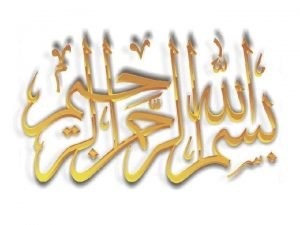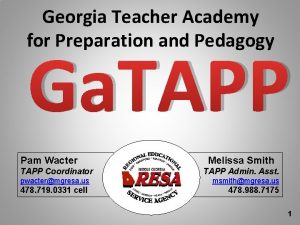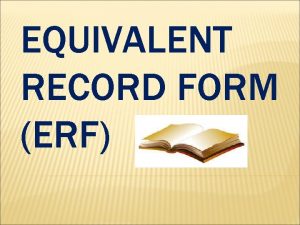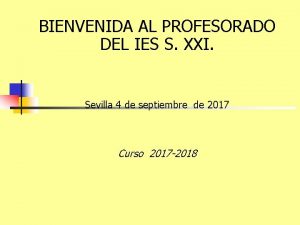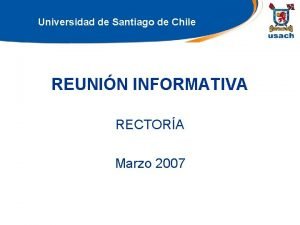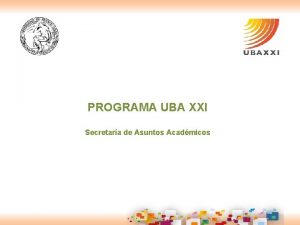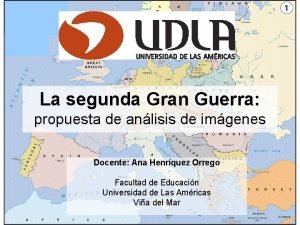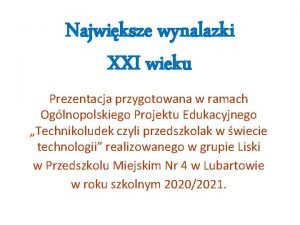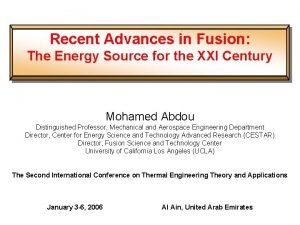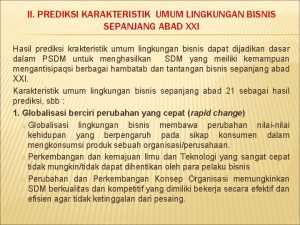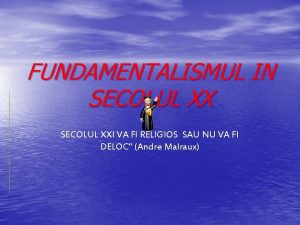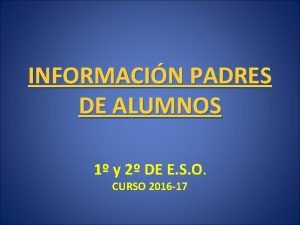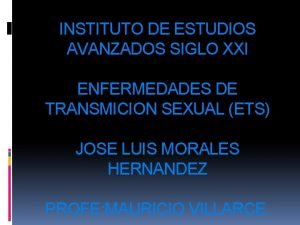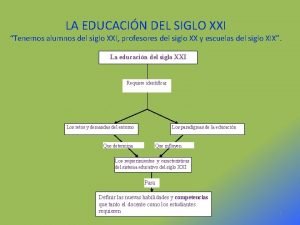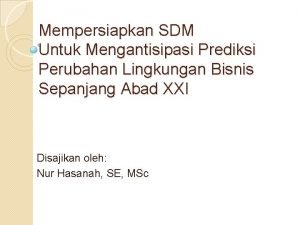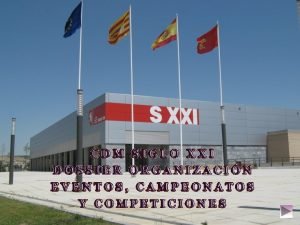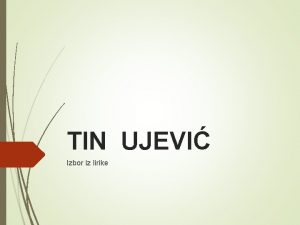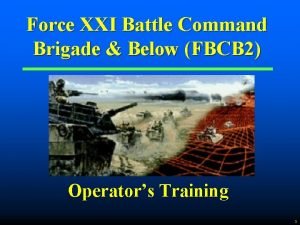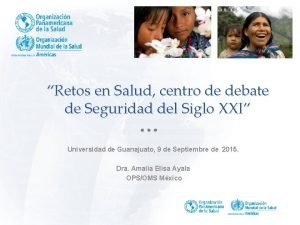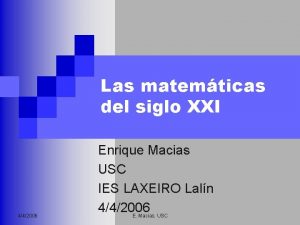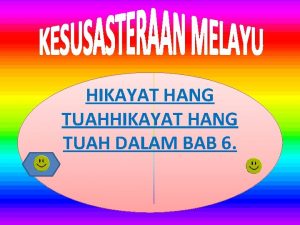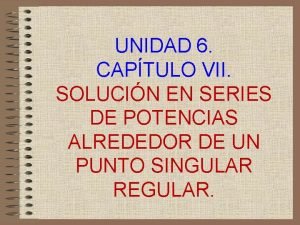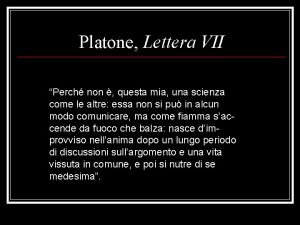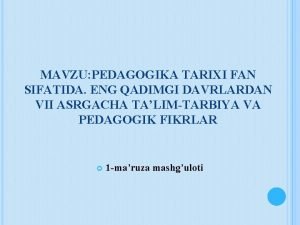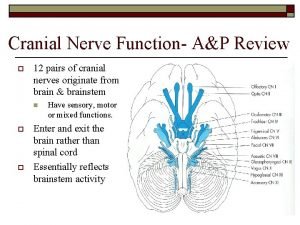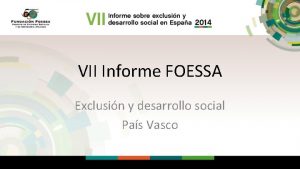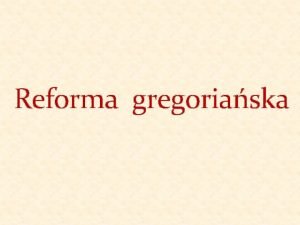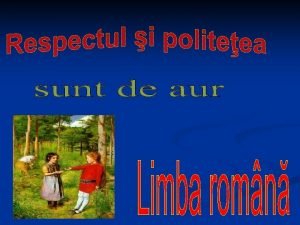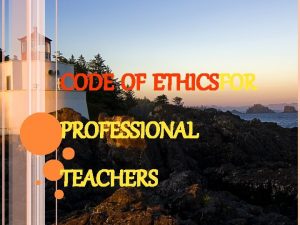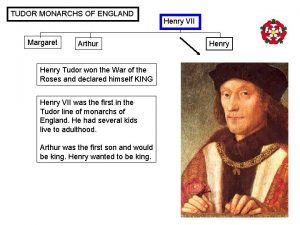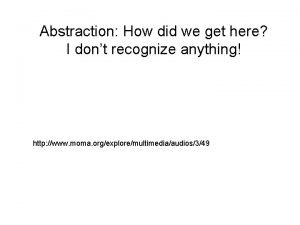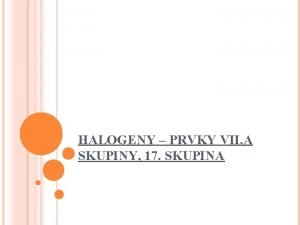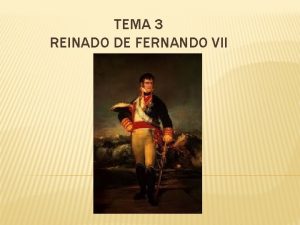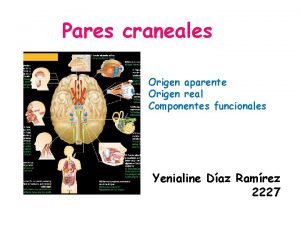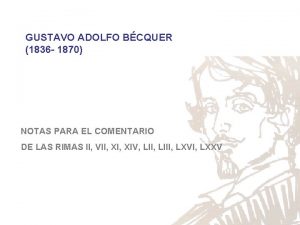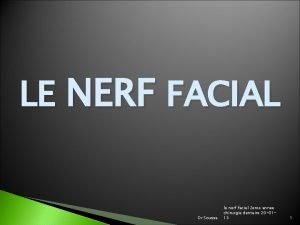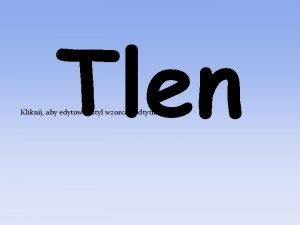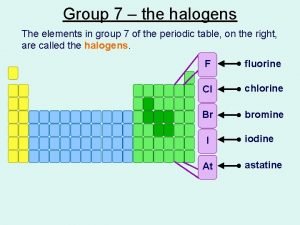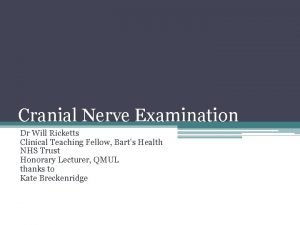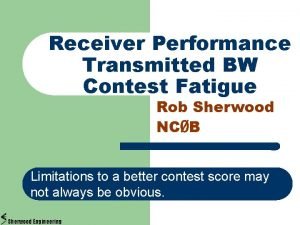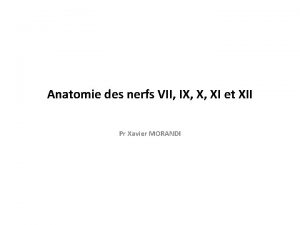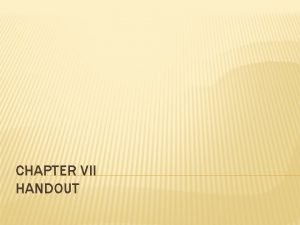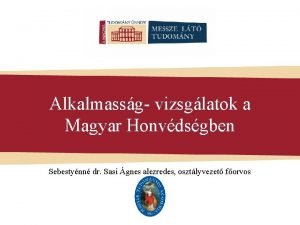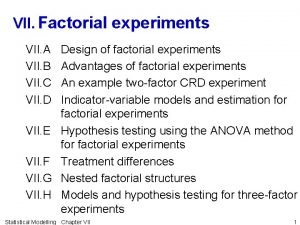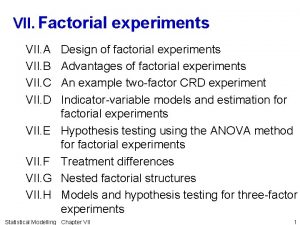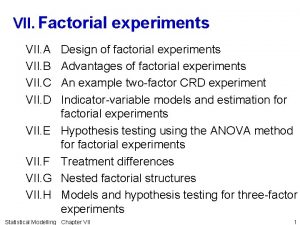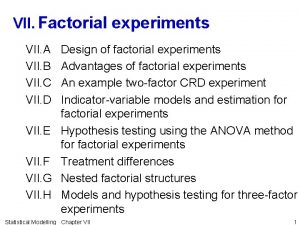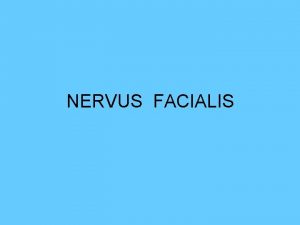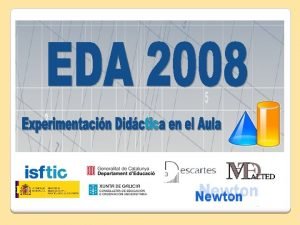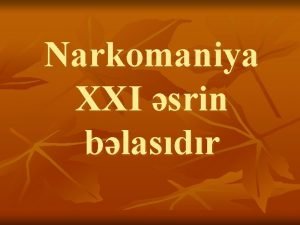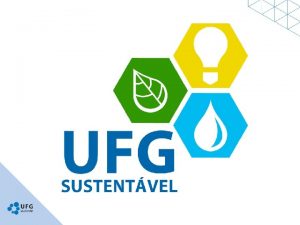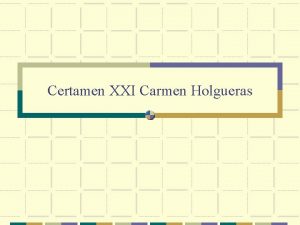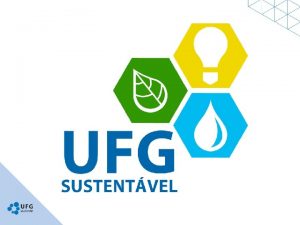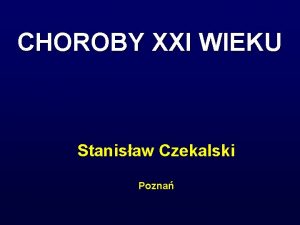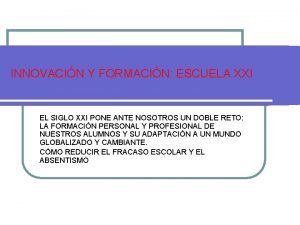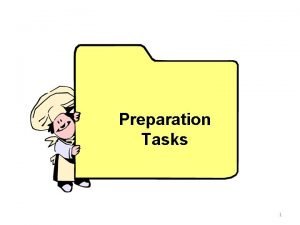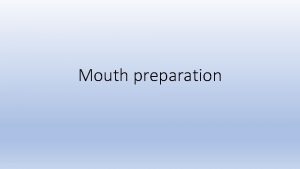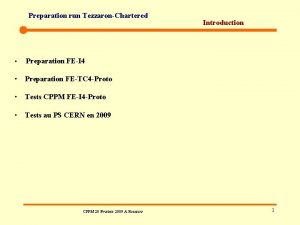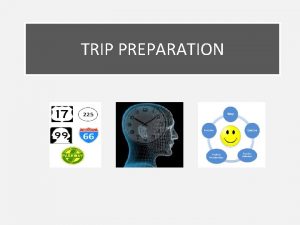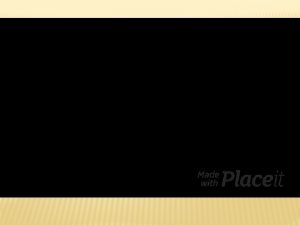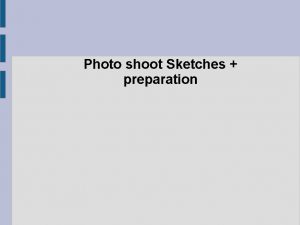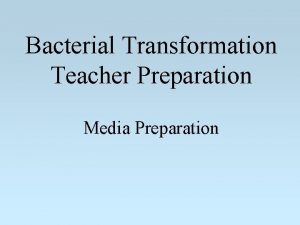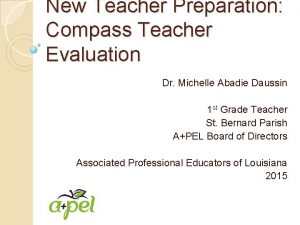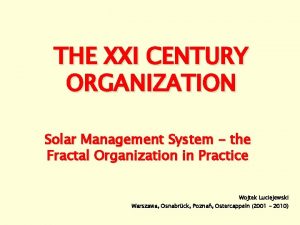CHALLENGES OF TEACHER PREPARATION IN XXI CENTURY VII














































- Slides: 46

CHALLENGES OF TEACHER PREPARATION IN XXI CENTURY VII TEACHER FESTIVAL, YELABUGA - 2016 MOURAT TCHOSHANOV, UNIVERSITY OF TEXAS AT EL PASO





LINK BETWEEN EDUCATION AND ECONOMY The global achievement gap between U. S. students and their international peers in competitor nations U. S. students fare poorly compared to their counterparts on international assessments, such as the Programme for International Student Assessment (PISA) These results are economically significant. Countries that do well on PISA have demonstrated higher increases in GDP growth than countries that do not (Partnership for 21 st Century Skills 2008) An unintended consequence of progress in closing national achievement gaps has been a lack of attention to the global achievement gap—and to the growing competitive demand for advanced knowledge and skills AACTE REPORT (2010). 21 ST CENTURY KNOWLEDGE AND SKILLS IN EDUCATOR PREPARATION







. . . А ЧТО, ЕСЛИ ИЗМЕНИТЬ ЦЕЛЬ? Влияет ли образование на качество жизни? Индекс качества жизни (QLI=Quality Life Index) OECD-2015: http: //www. oecdbetterlifeindex. org/ Correlations: EDU and QLI: Pearson’s r=0. 449569, p<0. 05 R&D and QLI: Pearson’s r=0. 581485, p<0. 05 TIMSS and QLI: Pearson’s r=0. 443535, p<0. 05 R&D and EDU: Pearson’s r=0. 403627, p<0. 05

XXI CENTURY ECONOMY AND NATURE OF LABOR Over the last several decades, the industrial economy based on manufacturing has shifted to a service economy driven by information, knowledge, innovation and creativity. Today, more than 80 percent of jobs are in the service sector, which includes high-growth, high-wage and high-skilled occupations in new and emerging industries. Technology has supported these changes, which include flatter management structures, decentralized decision making, information sharing and the use of task teams, cross-organizational networking, just-in-time inventory and flexible work arrangements. AACTE REPORT (2010). 21 ST CENTURY KNOWLEDGE AND SKILLS IN EDUCATOR PREPARATION






P 21 FRAMEWORK The P 21 framework for 21 st century teaching and learning has been developed and refined over a six year period with input from hundreds of educators, business leaders, community leaders, parents, students; and policymakers. The Framework describes the skills, knowledge and expertise students must master to succeed in work and life — a blend of content, knowledge, specific skills, expertise and literacies. You can visit www. p 21. org for information on the P 21 as well as the Framework.

21 ST CENTURY STUDENT OUTCOMES AND SUPPORT SYSTEM AACTE REPORT (2010). 21 ST CENTURY KNOWLEDGE AND SKILLS IN EDUCATOR PREPARATION

Content Knowledge and Disciplines Mastery of fundamental subjects is essential for students in the 21 st century. Disciplines include: English, Reading or Language Arts World Languages Arts Mathematics Economics Science Geography History Government and Civics

21 st Century Interdisciplinary Themes • Global Awareness, e. g. understanding global issues, other nations and other cultures. • Financial, Economic, Business and Entrepreneurial Literacy, e. g. , knowing how to make economic choices, understanding the role of the economy in society. • Civic Literacy, e. g. learning how to participate effectively in civic life; exercising the rights and obligations of citizenship. • Health Literacy, e. g. , obtaining, interpreting and understanding basic health information and services; understanding preventive physical and mental health measures. • Environmental Literacy, e. g. , demonstrating knowledge and understanding of the environment and the circumstances and conditions affecting it; taking individual and collective action towards addressing environmental challenges. AACTE REPORT (2010). 21 ST CENTURY KNOWLEDGE AND SKILLS IN EDUCATOR PREPARATION

21 st CENTURY “ 4 C” SKILLS • Critical Thinking and Problem Solving, e. g. , effectively analyze and evaluate evidence, arguments, claims and beliefs; solve different kinds of non-familiar problems in both conventional and innovative ways. • Communication, e. g. , articulate thoughts and ideas effectively using oral and written communication skills in a variety of forms and contexts. • Collaboration, e. g. , demonstrate ability to work effectively and respectfully with diverse teams. • Creativity and Innovation, e. g. , use a wide range of idea creation techniques to create new and worthwhile ideas. AACTE REPORT (2010). 21 ST CENTURY KNOWLEDGE AND SKILLS IN EDUCATOR PREPARATION

Information, Media and Technology Skills Information Literacy, e. g. , access and evaluate information critically and competently; manage the flow of information from a wide variety of sources. Media Literacy, e. g. , understand both how and why media messages are constructed; create media products by understanding and utilizing the most appropriate media creation tools, characteristics and conventions. ICT (Information, Communications, and Technology) Literacy, e. g. , use technology as a tool to research, organize, evaluate and communicate information. AACTE REPORT (2010). 21 ST CENTURY KNOWLEDGE AND SKILLS IN EDUCATOR PREPARATION

Life and Career Skills Today’s life and work environments require far more than thinking skills and content knowledge. Cultivating the ability to navigate the complex life and work environments requires students to pay rigorous attention to developing adequate life and career skills: • Flexibility and Adaptability • Initiative and Self-Direction • Social and Cross-Cultural Skills • Productivity and Accountability • Leadership and Responsibility AACTE REPORT (2010). 21 ST CENTURY KNOWLEDGE AND SKILLS IN EDUCATOR PREPARATION


WHAT DO EDUCATORS NEED TO KNOW AND DO? If we commit to a vision of 21 st century knowledge and skills for all students, it is critical that we support educators in mastering the competencies that ensure positive learning outcomes for students. These include: • Successfully aligning technologies with content and pedagogy and developing the ability to creatively use technologies to meet specific learning needs • Aligning instruction with standards, particularly those standards that embody 21 st century knowledge and skills • Balancing direct instruction strategically with projectoriented teaching methods • Applying child and adolescent development knowledge to educator preparation and education policy

WHAT DO EDUCATORS NEED TO KNOW AND DO? (cont. ) • Using a range of assessment strategies to evaluate student performance and differentiate instruction (including but not limited to formative, portfolio-based, curriculum-embedded and summative), • Participating actively in learning communities; tapping the expertise within a school or school district through coaching, mentoring, knowledge-sharing, and team teaching, • Acting as mentors and peer coaches with fellow educators, • Using a range of strategies to reach diverse students and to create environments that support differentiated teaching and learning, and • Pursuing continuous learning opportunities and embracing career-long learning as a professional ethic. AACTE REPORT (2010). 21 ST CENTURY KNOWLEDGE AND SKILLS IN EDUCATOR PREPARATION


TEACHER PREPARATION AND 21 st CENTURY KNOWLEDGE AND SKILLS The most important components of teacher preparation programs which can integrate 21 st century knowledge and skills more purposefully in their reform efforts: • Leadership • Program Design a. Curriculum b. Instructional Models c. Assessment • Learning Environments • Partnerships • Continuous Improvement AACTE REPORT (2010). 21 ST CENTURY KNOWLEDGE AND SKILLS IN EDUCATOR PREPARATION


ASSESSMENT: CRITIQUE OF TESTING Critique of the standardized assessment: • The tests are not designed to gauge how well students apply what they know to new situations or evaluate how students might use technologies to solve problems or communicate ideas. • While teachers and schools are being asked to modify their practice based on standardized test data, the tests are not designed to help teachers make decisions about how to target their daily instruction. • Current testing systems are rarely designed to measure a school or district’s contribution to learning from a student’s first day until his or her last day. AACTE REPORT (2010). 21 ST CENTURY KNOWLEDGE AND SKILLS IN EDUCATOR PREPARATION


АМЕРИКАНСКАЯ ПОГОВОРКА “The grass is always greener on the other side of the fence”










QUALITY OF LFE INDEX

Average score TIMSS Average Korea, Rep. of Singapore Chinese Taipei Hong Kong Japan Russia Israel Finland United States England-GBR Hungary Australia Slovenia Lithuania Italy New Zealand Kazakhstan Sweden Ukraine Norway Armenia Romania Arab Emirates 500 613 611 609 586 570 539 516 514 509 507 505 505 502 498 487 484 479 475 467 458 456 △ △ △ ▽ ▽ ▽ ▽ ▽ Turkey 452 ▽ TIMSS-2011 8 GRADE MATHEMATICS
 Outcome-based assessment in ecd
Outcome-based assessment in ecd Tapp program georgia
Tapp program georgia Erf?
Erf? Good afternoon teacher and my friend
Good afternoon teacher and my friend Ies siglo xxi sevilla
Ies siglo xxi sevilla Puntajes psu 2007
Puntajes psu 2007 Perfil del docente del siglo xxi
Perfil del docente del siglo xxi Claves de corrección uba xxi
Claves de corrección uba xxi Vertical y horizontal
Vertical y horizontal Wynalazki xxi wieku
Wynalazki xxi wieku La sociedad del siglo xxi, nuevos paradigmas de familia
La sociedad del siglo xxi, nuevos paradigmas de familia Energy xxi
Energy xxi Karakteristik lingkungan bisnis abad 21
Karakteristik lingkungan bisnis abad 21 Fundamentalismul crestin
Fundamentalismul crestin Mirador plumier padres
Mirador plumier padres Microorganismo
Microorganismo Cualidades del docente del siglo xxi
Cualidades del docente del siglo xxi Persiapan sdm mengantisipasi perubahan lingkungan bisnis
Persiapan sdm mengantisipasi perubahan lingkungan bisnis Polideportivo siglo 21 zaragoza
Polideportivo siglo 21 zaragoza Nase vile analiza
Nase vile analiza An/uyk-128a(v)3
An/uyk-128a(v)3 Salud publica siglo xxi
Salud publica siglo xxi Siglo xxi lalin
Siglo xxi lalin Sinopsis hikayat hang tuah
Sinopsis hikayat hang tuah Ecuacion indicial
Ecuacion indicial Lettera vii platone
Lettera vii platone Pedagogika fani rivojlanish tarixi ppt
Pedagogika fani rivojlanish tarixi ppt How to assess facial nerve
How to assess facial nerve Vii informe foessa
Vii informe foessa Title vii of the civil rights act
Title vii of the civil rights act Spotkanie grzegorza vii z cesarzem henrykiem iv obraz
Spotkanie grzegorza vii z cesarzem henrykiem iv obraz Soarele de dupa vii isi arata fata
Soarele de dupa vii isi arata fata Article iv the teacher and the profession explanation
Article iv the teacher and the profession explanation Henry vii
Henry vii André derain mountains at collioure
André derain mountains at collioure Prvky 17 skupiny
Prvky 17 skupiny Fernando vii
Fernando vii Pares craneales y su origen
Pares craneales y su origen Rima vii becquer comentario
Rima vii becquer comentario Nerf vii bis
Nerf vii bis Odpalanie palnika acetylenowo-tlenowego
Odpalanie palnika acetylenowo-tlenowego Potassium bromide + chlorine
Potassium bromide + chlorine Cranial nerve assessment
Cranial nerve assessment Sherwood engineering receiver
Sherwood engineering receiver Xavier morandi
Xavier morandi Handout definition
Handout definition 10/2015 (vii. 30) hm
10/2015 (vii. 30) hm
